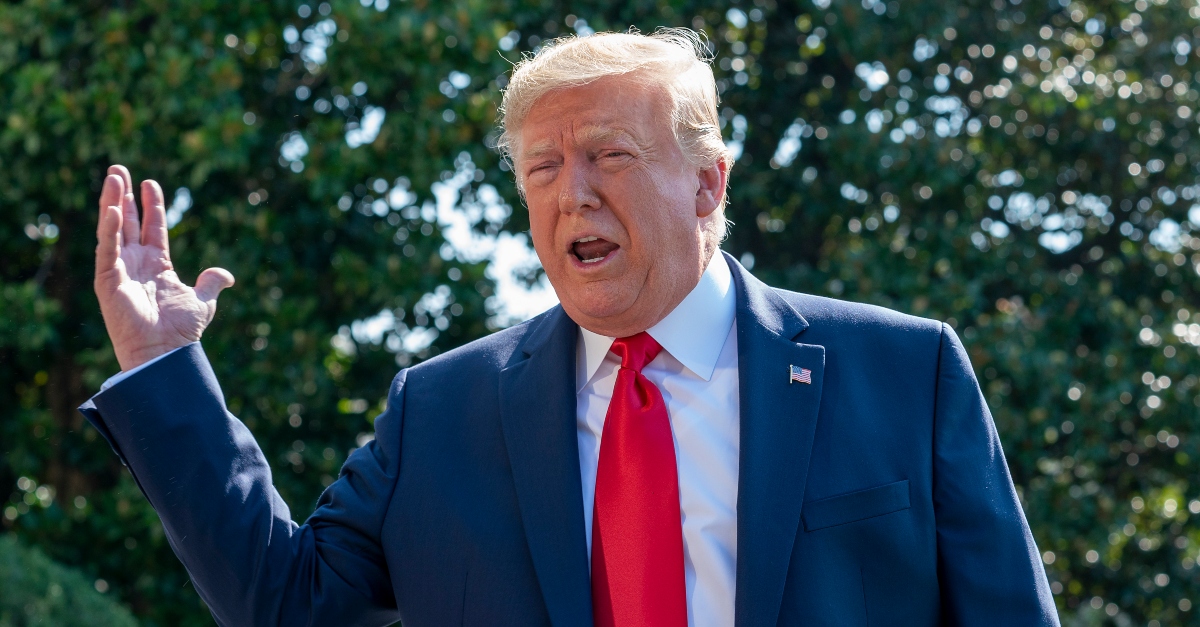
Not long after the Department of Justice downplayed the urgency of the Don McGahn subpoena case in light of the House of Representatives’ vote to impeach the president, the House Judiciary Committee responded by saying additional articles of impeachment could be on the horizon.
In a 19-page supplemental appellate brief on Monday, House Democrats responded to DOJ’s argument that the need to expedite the resolution of the McGahn subpoena dispute has been eliminated. DOJ claimed that House Judiciary’s “primary justification for its decision to sue no longer exists,” and “the article of impeachment addressing purported obstruction of Congress relies in part on the judicial proceedings in this very case.” DOJ suggested it would be inappropriate for the Court to weigh in.
The Judiciary Committee, in arguing last week that it needs former special counsel Robert Mueller’s grand jury materials, suggested that this information could lead to a second impeachment. This prospect was raised again on Monday.
The Committee argued that the McGahn case does warrant expedited attention for legislative and oversight purposes, such as amending the law or creating a new law “relating to election security, campaign finance, misuse of electronic data, and the types of obstructive conduct that the Mueller Report describes.” In addition, they said the McGahn case is relevant for the consideration of “additional articles of impeachment”:
This case is not moot first because McGahn was a witness to several of the President’s past efforts to undermine investigations into foreign interference in elections, which relate directly to the obstruction of Congress Article of Impeachment.McGahn’s testimony would thus inform the House’s decision-making about impeachment and presentation of the Articles in a Senate trial. McGahn’s testimony is also relevant to the Committee’s ongoing investigations into Presidential misconduct and consideration of whether to recommend additional articles of impeachment.
“The Committee continues to suffer harm with each additional day that it is denied access to McGahn’s testimony. The Committee has already waited eight months. The Committee should not be required to wait any longer,” the Committee concluded.
The Judiciary Committee’s separate impeachment investigation is based on the findings contained in the report on election interference and obstruction of justice produced by Mueller. House General Counsel Douglas N. Letter said last week that Judiciary Committee Democrats are determined to obtain additional grand jury materials produced in the course of Mueller’s investigation.
Attorneys for House Democrats have noted that Trump publicly contradicted what McGahn told Mueller. They maintain that the circumstances require in-person testimony from McGahn regarding the president’s attempts to discredit him.
Trump claimed in June that McGahn lied under oath when he told Mueller: the president, on two occasions, asked him to put into motion Mueller’s firing; directed him to create a false record denying that this occurred.
“Substantial evidence indicates that in repeatedly urging McGahn to dispute that he was ordered to have the Special Counsel terminated, the President acted for the purpose of influencing McGahn’s account in order to deflect or prevent further scrutiny of the President’s conduct towards the investigation,” Mueller concluded.
House Response to DOJ in McGahn by Law&Crime on Scribd
[Image via Tasos Katopodis/Getty Images]